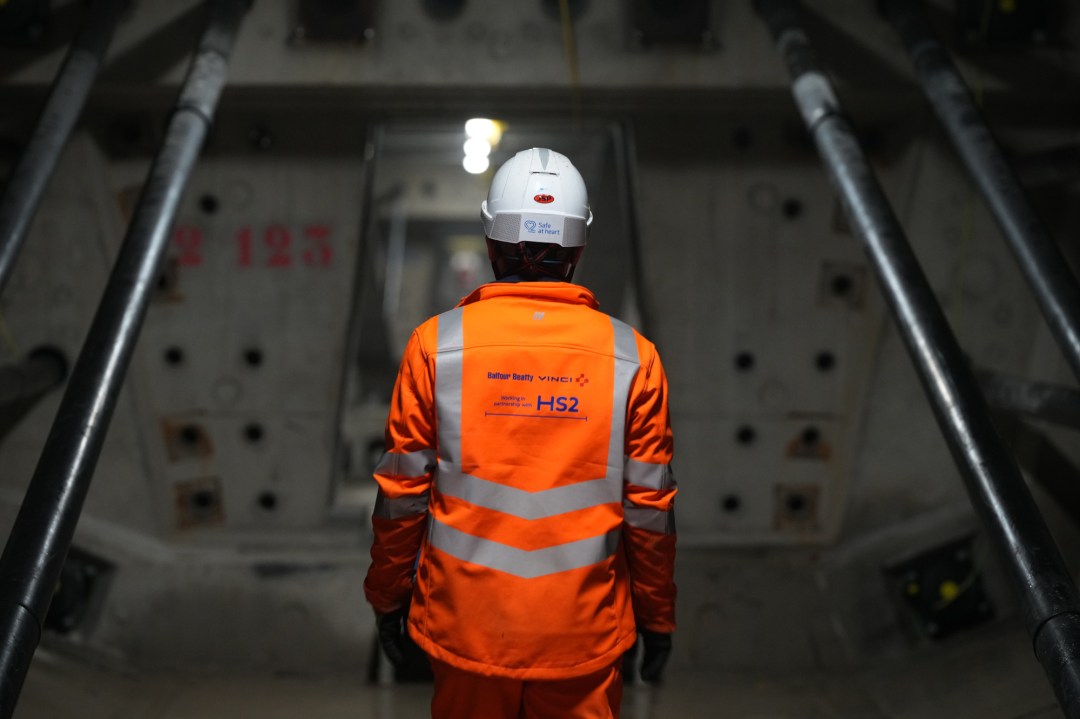As if the saga of HS2 could not get any worse, Transport Secretary Heidi Alexander will reportedly announce today that, actually, the railway line will not be open by its latest proposed date of 2033, and that 2035 is now more realistic. But I wouldn’t book your ticket just yet. Some analysts believe the line – which is a truncated version of the original proposal, only reaching Birmingham – will not be open for a couple of years or so after that.
For some reason a Conservative government then decided the state should handle HS2, in spite of the lousy record of civil servants in managing such projects
That will be more than quarter of a century after the then-Conservative government decided to go ahead with it. In the first 25 years of railway history, which began two centuries ago this year, the country was transformed by railways. Lines stretched across the country, all built without the aid of a single bulldozer. In the modern age, with all the earth-moving equipment in the world, all we will have achieved is to duplicate a line from London to Birmingham. And for that we will have paid upwards of £54 billion – although does anyone really believe that that figure, the latest official estimate, will be the last upwards revision?
I can’t disagree with Alexander when she says that the last Conservative government, through HS2, have turned UK national infrastructure projects into a ‘laughing stock’. She will be reporting the findings of the latest review into HS2 (by John Stewart, the former chief executive of another rail project which overran, Crossrail) which is reported to have uncovered numerous examples of contractors inflating costs. She will be right to announce that some may be investigated for fraud.
HS2 is a huge blot on the copybook of the Conservative government which had several chances to cancel the project before it got out of hand. As I reported here in 2012, Cameron’s cabinet at that stage was on the point of pulling the plug. Boris Johnson had another chance in 2020, when Lord Berkeley told him the costs had run ‘completely out of control’ and that it was now expected to cost more than £100 billion. Yet he went ahead anyway, without any obvious answer as to how the costs would be brought under control.
HS2 was ill-conceived from the start. It was over-engineered with a needlessly high line speed of 225 mph (150 mph would have been fine given that all the cities which are connected by the project are within 200 miles of each other). It bypassed places like Coventry and Stoke-on-Trent which it ought to have been serving. But the scandal of HS2 goes way beyond the railway itself. It is an object lesson in how not to undertake infrastructure projects: by setting up a state-owned company and putting the bill on the taxpayer.
HS1 – from St Pancras to the Channel Tunnel – was built with private capital. It wasn’t free of issues, but it was built to a reasonable timeframe. For some reason a Conservative government then decided the state should handle HS2, in spite of the lousy record of civil servants in managing such projects. You could almost hear the contractors licking their lips.
Labour is quite justified in damning the Tories for HS2 – David Cameron’s government, after all, was supposed to be committed to bringing the public finances back into balance. Yet Labour can’t seem to see it is about to repeat the mistake with Sizewell C. There, the circumstances are similar. Hinkley C is being built with private finance, with French energy company EDF taking the financial risk. EDF, indeed, has burned its fingers a bit. So what has Starmer’s government done? It has decide to go ahead with a second nuclear power station, almost identical in its troublesome design, but this time built entirely with public money. What could possibly go wrong? I’m not booking my ticket on HS2 just yet, but I am prepared to place a bet that Sizewell C will be the next UK infrastructure disaster.









Comments